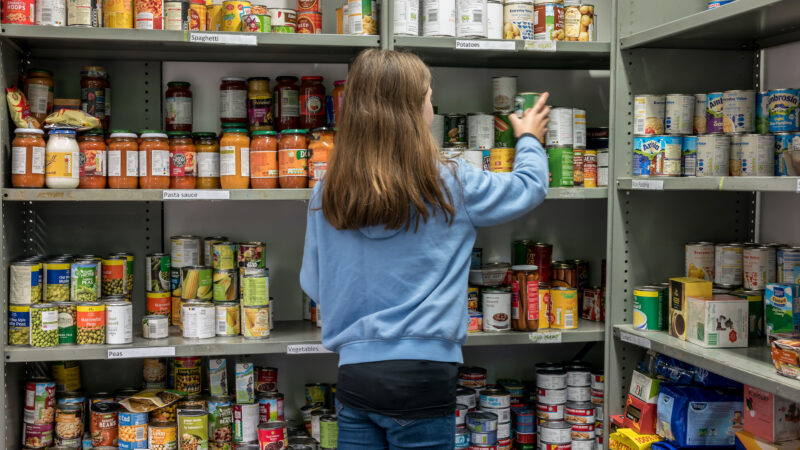
There was a dire, unacceptable food poverty emergency even before the Covid-19 pandemic. Now coronavirus and its economic implications could push one million more families below the poverty line, according to projections from IPPR.
Emergency food aid provision has been a crucial lockdown lifeline for households up and down the country. Data this week shows that food bank demand has increased dramatically during the recent lockdown. The Trussell Trust distributed 89% more food parcels in April this year than in the same month last year. The number of families with children needing help from Trussell Trust food banks has doubled. These trends are replicated at local food banks across the country, and come on top growing demand at food banks before Covid, for which Universal Credit is cited as a key reason.
The government must apologise properly for the voucher scheme’s flaws and delays, which heartbreakingly saw families humiliated at the checkouts as their delayed vouchers were then rejected. Despite its operational difficulties, however, the national food voucher scheme for school children has helped the most vulnerable families get food on the table during these difficult times.
Downing Street’s confirmation this week that the voucher scheme would not operate in the upcoming, long school summer holidays raises serious questions. It could well put the country on a trajectory towards an even more dire food poverty emergency. It will compound the financial anxieties facing families, with 35% of households with children worried that they will struggle to pay their rent at some point in the next three months.
The Covid-19 pandemic has exposed the dangerous inequalities in society in many different ways, and it has shown the gaping holes in the safety net after a decade of austerity. In recent years we have seen growing levels of holiday hunger – the situation where children, sadly, struggle to access enough nutritious food whilst the schools are closed and free school meals are not available.
The emergency voucher scheme, providing a £15 voucher each week for food, covers up to 1.3 million children, totalling £19,500,000 per week in government support. Instead of the voucher scheme, the government has said a £9m programme will be in place for the summer holidays for ‘holiday activities’ and ‘a food programme’. That’s an alarming reduction in the scale of support over a six-week school holiday.
We could now face a perfect storm for food poverty affecting families with children. Holiday hunger schemes that have become a lifeline in local communities across the country in recent years will find it difficult to operate as normal with social distancing and other Covid implications. Food banks will continue to face growing levels of demand, and some will struggle to keep their shelves stocked in pace with this increasing need. As the economic impacts of the pandemic become more widespread, people may not be able to donate to their local food banks in the usual way.
This is why the national voucher scheme, notwithstanding its administrative difficulties, must remain in place throughout the summer holidays. The voucher scheme was in place over the two-week Easter break and May half-term. Its availability through those holidays will have kept some families above the breadline and will have stopped children going hungry.
In pre-Covid times, it was estimated that up to three million children were at risk of hunger during the school holidays. In response to this challenge, local projects have relied on voluntary and community groups and local authority co-ordination and funding. Local projects will again do their best this summer, but they will face major challenges in these difficult times. Local authorities are facing numerous new and big challenges in marshalling local responses to the pandemic. A responsible government with any understanding of the reality of this situation on the ground would want to step in and help.
Whilst we support the vital work of local food banks and charities, it is regretful and unacceptable that our country has become so dependent on their efforts. Food poverty and hunger in Britain can be avoided with different political choices. No government should be content with a situation where up to three million children could go hungry during school holidays. No government should find the levels of poverty and inequality in Britain today acceptable. The national voucher scheme should continue for the school summer holidays. The government must not turn its back on those children at risk of going hungry.




More from LabourList
‘Labour must confront the crisis of first past the post before it’s too late’
Unite to debate affiliation with Labour Party at conference next year
Miliband tops LabourList Cabinet league table, with gender divide in PM approval